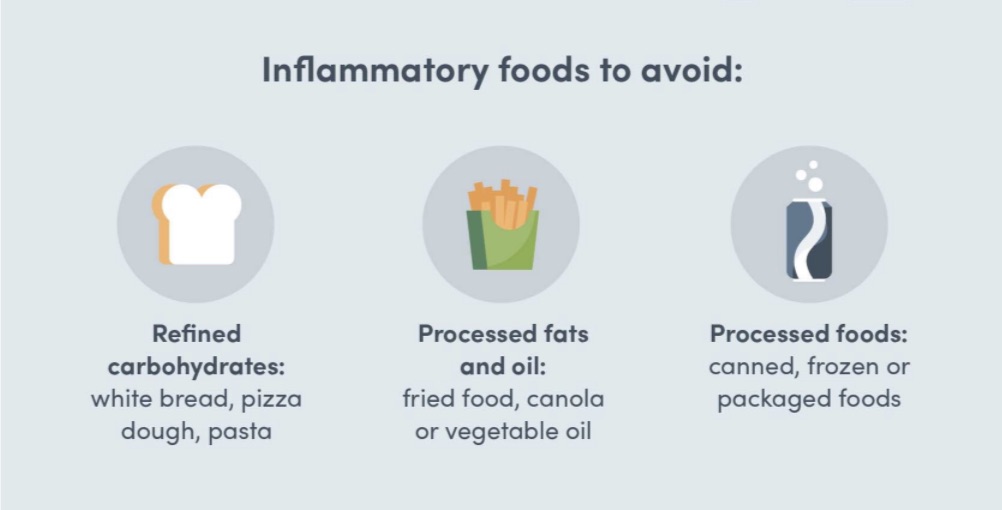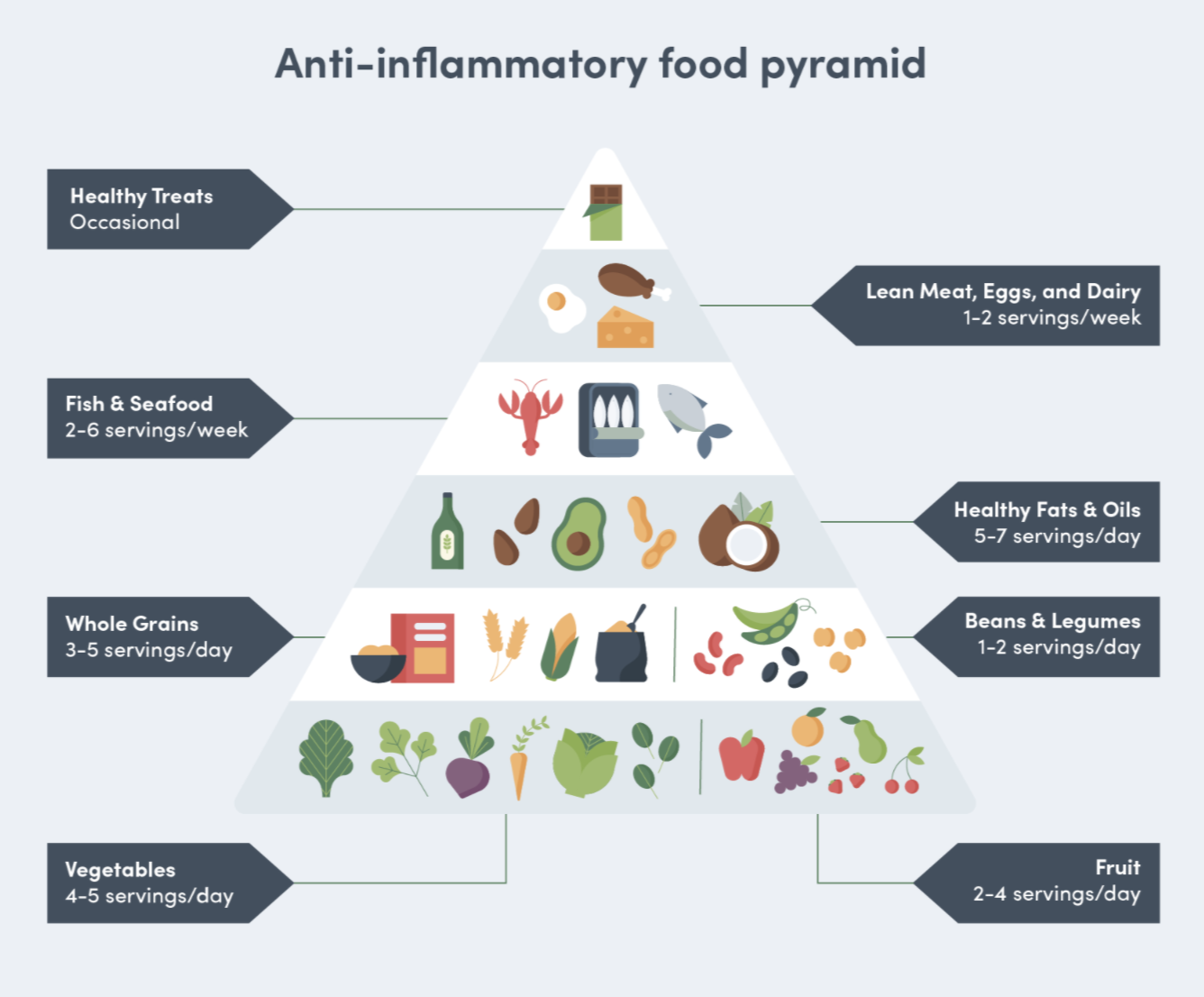Author: Elsie Weisskoff
When the body ages, it can easily fall victim to disease, injury, or infection. When this happens, the natural bodily response is inflammation. While this type of inflammation is good, chronic inflammation can be harmful to your health.
According to the World Health Organization, chronic diseases are the number one threat to human health. These chronic inflammation diseases are common elderly health issues. They include diabetes, cardiovascular diseases, arthritis and joint diseases, and strokes.
Diet can have a large influence on these inflammatory diseases. Incorporating anti-inflammatory foods to your diet and avoiding inflammatory foods is an attainable way to offset any negative inflammation.
Foods to Avoid 
1. Refined Carbohydrates
This includes foods like white bread, pizza dough, and pasta. Try swapping these refined carbohydrates for whole wheat or whole grain options.
2. Processed Fats and Oils
This includes fried food and the oils they are made with such as canola or vegetable oil. Try reducing the amount of fast food you’re consuming as it’s typically made with these inflammatory oils.
3. Processed Foods
This includes foods that are canned, frozen or packaged. These foods typically contain unhealthy preservatives. Try incorporating more fresh produce into your diet.
Foods to Incorporate
1. Berries
Acai, blueberries, strawberries, kiwi berries, raspberries and blackberries are all high in antioxidants which target inflammation. Add these to your breakfast or snack on them for dessert.
2. Avocados
Avocados contain healthy sugar that helps block the pro-inflammatory response in your body in addition to being a source of healthy fats. Avocado toast isn’t just for millennials. Add it to you weekday breakfasts.
3. Grapes
Another healthy fruit, grapes contain anthocyanins and resveratrol which are antioxidants that reduce inflammation. For a summer treat, freeze your grapes and snack on them to cool off.
4. Cherries
One study showed that eating 45 cherries a day significantly reduced inflammation in patients. Add cherries to yogurt for a delicious breakfast.
5. Mushrooms
Mushrooms are rich in selenium, the B vitamins, copper and phenols which all provide anti-inflammatory protection. However, be sure not to overcook them, as they lose these nutrients if overcooked.
6. Tomatoes
Tomatoes contain vitamin C, lycopene and potassium which are antioxidants that have anti-inflammatory properties. You can add tomatoes to nearly any dish, from pasta to salads.
7. Kale
This leafy green is packed with phytonutrients, minerals and vitamins that combat inflammation. Next time you go to make a salad, try swapping your romaine for some kale.
8. Peppers
Chili peppers contain antioxidants and vitamin C which have anti-inflammatory effects. Try incorporating them into your next Mexican dish.
9. Broccoli
This superfood is a great source for sulforaphane, an antioxidant with anti-inflammatory properties. There are many ways to enjoy this vegetable. You can eat it raw, steamed, baked or sautéed.
10. Salmon
Salmon is a fatty fish that’s an excellent source of omega-3 fatty acid and DHA. Enjoy salmon for lunch or dinner with a side of veggies.
11. Turmeric
Turmeric is a spice that has anti-inflammatory, antimicrobial, and antioxidant properties. Incorporate this spice into your dishes or enjoy it in tea.
12. Dark Chocolate
Dark chocolate contains cocoa, which is an antioxidant that reduces inflammation. Enjoy some dark chocolate and berries for an anti-inflammatory dessert.
13. Chia seed
Chia seeds contain an omega-3 fatty acid which has anti-inflammatory effects. Add chia seeds to your hot cereal or smoothie.
Diet is an important part of healthy aging. If you’re a senior, consider adding these anti-inflammatory foods to your diet to offset any harmful inflammation.










